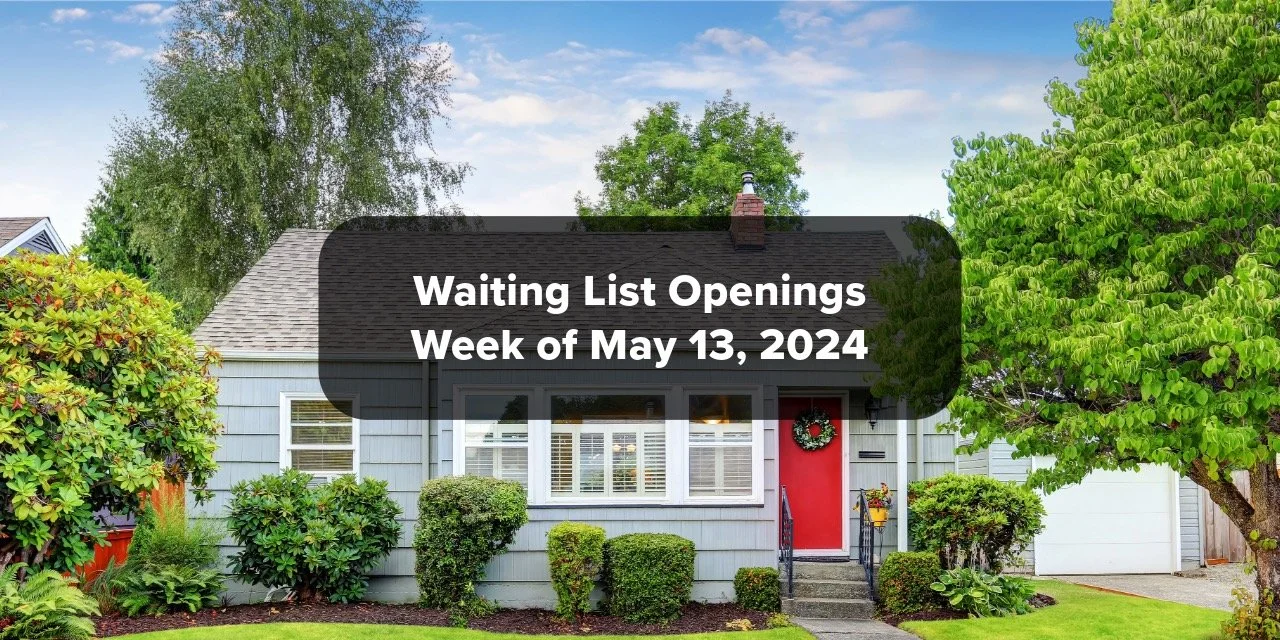Florida Section 8 Housing
/Introduction
Florida Section 8 Housing is a program funded by the federal government that provides rental assistance to low-income individuals and families. The program, also known as the Housing Choice Voucher program, allows participants to find and rent housing from private landlords with assistance from the government. In this article, we will provide information and resources for those seeking Section 8 housing in Florida. We will cover eligibility requirements, income limits, fair market rents, and the application process, as well as discuss low-income housing options in Florida for those who may not qualify for Section 8 or who are on the waiting list. Whether you are a current Section 8 participant or are considering applying for the program, this article will provide valuable information to help you secure affordable housing in Florida.
Who Qualifies for Section 8 in Florida?
To be eligible for Section 8 housing in Florida, applicants must meet certain requirements. These requirements are determined by the federal government and enforced by local housing authorities. The eligibility factors include income limits, citizenship status, and criminal history.
Income limits are the primary eligibility factor for Section 8 housing. In Florida, the income limits vary by county and household size. Generally, households must earn no more than 50% of the median income for their area to be eligible for Section 8 housing. For example, in Miami-Dade County, a household of four must earn no more than $44,100 per year to qualify for Section 8.
Other eligibility factors include citizenship status and criminal history. Applicants must be U.S. citizens or have eligible immigration status. Additionally, applicants must have no recent convictions for drug-related or violent crimes.
It's important to note that the demand for Section 8 housing in Florida often exceeds the availability of vouchers. As a result, there is typically a waiting list for Section 8 housing in Florida. It's advisable to apply as soon as possible and to explore alternative low-income housing options while on the waiting list.
What is the Maximum Section 8 Payment in Florida?
The amount of Section 8 payment in Florida is determined based on several factors, including the fair market rent (FMR) for the area, the family's income, and the size of the family. The FMR is determined annually by the Department of Housing and Urban Development (HUD) and varies by region.
In Florida, the maximum Section 8 payment varies depending on the location and size of the unit. For example, in Miami-Dade County, the maximum payment for a one-bedroom unit is $1,379, while the maximum payment for a four-bedroom unit is $2,513. In Hillsborough County, the maximum payment for a one-bedroom unit is $1,212, while the maximum payment for a four-bedroom unit is $2,213.
It's important to note that Section 8 payments may not cover the full cost of rent and tenants may be responsible for paying a portion of the rent. It's also important to find affordable housing options to maximize Section 8 benefits. Tenants should look for units with rents below the FMR to ensure they are getting the most out of their Section 8 benefits.
Income Limits for Section 8 Housing in Florida
Income limits are an important factor in determining eligibility for Section 8 housing in Florida. The income limits vary by county and household size and are determined annually by HUD. The limits are based on the median income for the area and are adjusted for family size.
In Florida, households must earn no more than 50% of the median income for their area to be eligible for Section 8 housing. For example, in Miami-Dade County, a household of four must earn no more than $44,100 per year to qualify for Section 8.
It's important to note that income limits are adjusted annually and can change from year to year. Tenants must report any changes in income to their local housing authority to ensure they remain eligible for Section 8 housing. Tenants who exceed the income limit may lose their eligibility for Section 8 housing and may be required to pay the full cost of rent.
Staying within the income limits is crucial to maintaining Section 8 eligibility. Tenants should take care to accurately report their income and promptly report any changes to their local housing authority.
The following table shows the current Income Limits in Florida.
Fair Market Rents for Section 8 Housing in Florida
Fair market rents (FMRs) play an important role in determining the amount of Section 8 assistance available in Florida. FMRs are the estimated rent for a unit that meets HUD's quality standards and is located in a specific geographic area. FMRs are used to determine the maximum amount of Section 8 payment a tenant can receive.
In Florida, FMRs vary by county and are determined annually by HUD. The FMRs are based on a survey of rental units in the area and are designed to reflect the rental market in the area.
It's important to note that FMRs can impact the amount of Section 8 assistance available to tenants. If a tenant rents a unit that has a rent higher than the FMR for the area, the tenant may be required to pay a portion of the rent. Alternatively, if a tenant rents a unit with a rent lower than the FMR, the tenant may be able to receive more Section 8 assistance.
Tenants should take care to find units with rents below the FMR for their area to maximize the amount of Section 8 assistance available.
The following table shows the current Fair Market Rent In Florida.
How to Apply for Section 8 Housing in Florida
To apply for Section 8 housing in Florida, tenants must follow the application process established by their local housing authority. The application process typically includes providing personal and financial information, and undergoing a criminal background check.
Applicants can apply for Section 8 online in Florida through the Florida Department of Economic Opportunity website. The website allows applicants to search for available housing opportunities and submit applications electronically.
In addition to the online application, tenants can also find the Section 8 housing in Florida application at their local housing authority office. The housing authority office can also provide assistance with completing the application and answering any questions.
It's important to note that there may be a waiting list for Section 8 housing in Florida and the length of the waiting list can vary by location. Tenants should apply as soon as possible to begin the process of securing affordable housing.
Housing Authorities in Florida
Housing authorities play a critical role in administering Section 8 housing in Florida. Housing authorities are local agencies responsible for managing affordable housing programs, including Section 8. They work with tenants and landlords to provide affordable housing options to low-income families and individuals.
To find and contact local housing authorities in Florida, tenants can visit the HUD website or contact the Florida Housing Coalition. The HUD website provides a list of housing authorities by state and offers contact information for each housing authority. The Florida Housing Coalition offers additional resources and support for tenants seeking affordable housing options.
In addition to administering Section 8 housing, housing authorities in Florida may offer other resources to tenants, such as housing counseling and landlord outreach programs. These resources can help tenants navigate the rental process and ensure they are successful in maintaining their affordable housing.
Tenants should take advantage of the resources available through their local housing authority to maximize their chances of securing affordable housing in Florida.
The following table is a list of Housing Authorities in Florida.
| Name of Housing Authority | Contact Information | Website |
|---|---|---|
| Alachua County Housing Authority | 703 NE 1st St, Gainesville, FL 32601 (352) 372-2549 |
Visit Website |
| Brevard County Housing Authority | 1401 Guava Ave, Melbourne, FL 32935 (321) 775-1590 |
Visit Website |
| Broward County Housing Authority | 4780 N State Road 7, Lauderdale Lakes, FL 33319 (954) 739-1114 |
Visit Website |
| Charlotte County Housing Authority | 340 San Casa Dr, Englewood, FL 34223 (941) 474-4168 |
Visit Website |
| Collier County Housing Authority | 5251 Golden Gate Pkwy, Naples, FL 34116 (239) 732-0732 |
Visit Website |
| Duval County Housing Authority | 1300 N Broad St, Jacksonville, FL 32202 (904) 630-3810 |
Visit Website |
| Hillsborough County Affordable Housing Services | 1208 Tech Blvd, Tampa, FL 33619 (813) 341-9101 |
Visit Website |
| Housing Authority of the City of Fort Myers | 4224 Renaissance Preserve Way, Fort Myers, FL 33916 (239) 344-3220 |
Visit Website |
| Housing Authority of Brevard County | 1401 Guava Ave, Melbourne, FL 32935 (321) 775-1590 |
Visit Website |
| Housing Authority of Daytona Beach | 211 N Ridgewood Ave, Daytona Beach, FL 32114 (386) 253-5653 |
Visit Website |
| Housing Authority of DeSoto County | 1490 E. Magnolia St., Arcadia, FL 34266 (863) 494-4343 |
Visit Website |
| Housing Authority of Fort Lauderdale | 437 SW 4th Ave, Fort Lauderdale, FL 33315 (954) 525-6444 |
Visit Website |
| Housing Authority of Lee County | 4224 Renaissance Preserve Way, Fort Myers, FL 33916 (239) 344-3220 |
Visit Website |
| Housing Authority of the City of Miami Beach | 200 Alton Rd, Miami Beach, FL 33139 (305) 532-6401 |
Visit Website |
| Housing Authority of Palm Beach County | 3432 W 45th St, West Palm Beach, FL 33407 (561) 684-2160 |
Visit Website |
| Housing Authority of the City of St. Cloud | 3301 17th St, St Cloud, FL 34769 (407) 957-7285 |
Visit Website |
| Housing Authority of the City of Tampa | 5301 W Cypress St, Tampa, FL 33607 (813) 341-9101 |
Visit Website |
| Jacksonville Housing Authority | 1300 Broad St, Jacksonville, FL 32202 (904) 630-3810 |
Visit Website |
| Manatee County Housing Authority | 5631 11th St E, Bradenton, FL 34203 (941) 756-3974 |
Visit Website |
| Miami-Dade Public Housing and Community Development | 701 NW 1st Ct, Miami, FL 33136 (786) 469-4100 |
Visit Website |
| Orange County Housing Authority | 525 E South St, Orlando, FL 32801 (407) 836-5150 |
Visit Website |
| Palm Beach County Housing Authority | 3432 W 45th St, West Palm Beach, FL 33407 (561) 684-2160 |
Visit Website |
| Pinellas County Housing Authority | 11479 Ulmerton Rd, Largo, FL 33778 (727) 443-7684 |
Visit Website |
| Seminole County Housing Authority | 662 Academy Ave, Sanford, FL 32771 (407) 688-7400 |
NA |
| Tallahassee Housing Authority | 2940 Grady Rd, Tallahassee, FL 32312 (850) 385-6126 |
Visit Website |
| Tampa Housing Authority | 5301 W Cypress St, Tampa, FL 33607 (813) 341-9101 |
Visit Website |
| Volusia County Housing Authority | 110 W Rich Ave, DeLand, FL 32720 (386) 736-1696 |
Visit Website |
| West Palm Beach Housing Authority | 1715 Division Ave, West Palm Beach, FL 33407 (561) 655-8530 |
Visit Website |
How Long Does it Take to Get Approved for Section 8 in Florida?
The Section 8 approval process in Florida typically includes a review of the applicant's personal and financial information, a criminal background check, and an inspection of the proposed rental unit. The timeline for approval can vary depending on several factors, including the number of applications received, the availability of funding, and the accuracy of the applicant's information.
In general, the typical timeline for Section 8 approval in Florida is between two and four weeks. However, it's important to note that the timeline can vary by location and individual circumstances. Tenants should contact their local housing authority to inquire about the expected timeline for approval in their area.
Tenants can also check the status of their Section 8 application in Florida by contacting their local housing authority. Housing authorities can provide updates on the application process and can help tenants address any issues that may arise during the approval process.
The following table shows housing authorities in Florida with open waiting lists.
| Name of Housing Authority | Waiting List Status | Website |
|---|---|---|
| Hillsborough County Affordable Housing Services | Open | Visit Website |
| Housing Authority of the City of St. Cloud | Open | Visit Website |
| Housing Authority of the City of Tampa | Open | Visit Website |
| Chipley Housing Authority | Open | Visit Website |
| Jacksonville Housing Authority | Open | Visit Website |
| Palm Beach County Housing Authority | Open | Visit Website |
Other Low-income Housing Options in Florida
For those who may not qualify for Section 8 housing in Florida or who are on the waiting list, there are other low-income housing options available. These options include public housing, privately owned subsidized housing, and low-income tax credit housing.
HUD housing is another option for low-income individuals and families in Florida. The HUD website provides information on HUD housing programs and resources, as well as an application for HUD housing in Florida.
In addition to HUD housing, there are low-income housing options available in Florida with no waiting list. These options include privately owned subsidized housing and low-income tax credit housing. Tenants can search for available units on websites such as Affordable Housing Online or by contacting their local housing authority.
It's important to explore all available low-income housing options in Florida to find the best fit for your individual needs and circumstances.
Conclusion
In summary, Section 8 housing is a program that provides rental assistance to low-income individuals and families in Florida. Eligibility for Section 8 is determined by income limits, citizenship status, and criminal history. The maximum Section 8 payment varies by location and is determined based on fair market rents and family income.
To apply for Section 8 housing in Florida, tenants must follow the application process established by their local housing authority. While there may be a waiting list for Section 8 housing, tenants can explore alternative low-income housing options in Florida, such as HUD housing, privately owned subsidized housing, and low-income tax credit housing.
It's important to stay within income limits, accurately report any changes in income, and find affordable housing options to maximize Section 8 benefits. Tenants should also take advantage of the resources available through their local housing authority to help locate and secure affordable housing.
Overall, whether you are a current Section 8 participant or are considering applying for the program, there are resources available to help you secure affordable housing in Florida. By exploring all available options and staying informed, you can find the best housing solution for your individual needs and circumstances.










